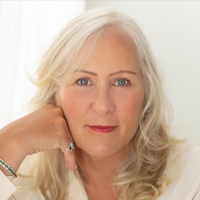
Because Alice does not know where she wants to go when she inquires of the Cheshire Cat, “What road do I take?” the cat reminds her then that any road will get her there. Our Alice is not stupid or confused, she is freaking tired. Perhaps even worse, she is discouraged. When Alice lived in Wonderland, she was in her first decade at age seven. The decades of life have worn away Alice’s naïve view of the world.
Today, older working women in particular may be feeling a bit of wonderland madness as just one of the effects of COVID-19. The path forward is anything but clear.
When speaking at a National Women in Roofing event this past spring, I presented the calculations from the Center for American Progress to demonstrate the financial injury a woman and her family endure when she leaves the workforce to care of others. This includes measuring the loss of contacts, skills, wages, raises, 401(k) contributions, 401(k) matches, and more. In the past, women have made caregiving decisions without the benefit of understanding the total cost of care. The rest of us benefit from women’s continued “free” caregiving in our society.
What did the workplace look like for women in 2020? I strongly encourage you read the McKinsey & Company study that asked that question. The study focuses on women who leave the workforce and those contemplating leaving the workforce.
Globally, as of earlier this year, women lost $800 billion in income due to COVID-19. Older women are also more likely to live in poverty than older men.
Multiple Challenges
I can tell you our pipeline is the women who are wealthy in their marriages and suddenly face a far different financial profile if they leave that marriage. This risk increases when women do not participate in the workforce for some or many years.
Black women and Latina women face the most hurdles to financial freedom. In part, this is because they are more likely to be the sole breadwinner in their family with all the pressure that brings.
The pandemic changed cracks in working women’s lives to sinkholes, as they became teachers and caregivers — and remained workers — all in the same 24 hours each day. Women with disabilities face these same challenges plus the one they always face with the disability.
“The pandemic changed cracks in working women’s lives to sinkholes, as they became teachers and caregivers — and remained workers — all in the same 24 hours each day.”
Living even briefly with a disability gave me insight into the daily experience of those who cannot escape. Replacing each ankle with a titanium ankle and then having one repaired required me to be off my feet for 12 weeks three separate times. I had to learn to walk again after. Each time, I was running my business, serving clients, and participating in the other facets of my life.
A major difference is I had the financial freedom to hire a limousine service to take me to client appointments and business events. I did this after trying to save a few bucks using taxis (this was pre-Uber). Left in a hot parking lot waiting for two-plus hours for a taxi when one event concluded, I decided spending the extra money was more than worth the price. Daily struggle and humiliation when just trying to get your work done makes everything harder.
Reality vs. Fantasy
The truth is that the folks who have power and money make rules that work for them, not others. Whether from a disability, racism, sexism or poverty, many people face circumstances that put them at a disadvantage and make it harder to have the resources to improve their lives.
Women, no matter what their demographic profile is, generally face more hurdles than men that prevent them from having the economic security that offers more choices. Having more choices makes it more likely that you can find a way to make things work in your favor. For example, they may allow you to keep working and maintain your living standards when hardships come up.
A major factor that undermines the ability of women to achieve economic security is that from an early age, women are socialized to avoid learning about money. This includes money in marriage, the cost of not working, the cost of longevity and the long-term cost of education. And because of this, they pay a high price later.
Overall, the reality is that compared with men, we earn less, pay more for our education, and remain in the collective dark about how to get capital to start a business, run a business, sell a business, ask for a raise, or connect what we study to what we will be paid in work. And because a women’s wealth is measured inside the statistic of household wealth, she does not necessarily have that wealth — even if she believes she does — so her retirement, outside of the marriage, may remain completely unfunded.
Working with women over the past 31 years, to ensure they receive fair monetary settlements in divorce and then steward that wealth for the rest of their lives, I can tell you that the pandemic divorce has increased the economic fragility of women in the extreme.
When working through division of assets, many women still do not realize this basic concept: The date of separation is the financial line in the sand for defining marital property. So unless otherwise negotiated, agreeing to a false, earlier date of separation (DOS) means that all company plan pensions, savings plans, and matches after DOS are separate property for the party that earned them.
It’s common to see women working against their own self-economic interest. The response we receive most often when we ask how this result came about is, “I didn’t know.”
Be Proactive
I want to believe that our industry is in the business of helping people solve money issues, and yet we do not routinely help families in one of the largest transactions in their lives — divorce. We only “help” them afterward to manage what assets are left.
In some cases, women in business received capital for the first time in their business lives when the Paycheck Protection Program (PPP) loans came through. That ended up a bit of lottery because we are back to those that knew what to do and how to do it. According to the Center for American Progress, the most basic understanding of how money works remains elusive to more than 50% of our population.
Additional Reading: Women Revamp Estate Plans During Pandemic
A One-Week Challenge
For advisors who think they never see the women I am writing about, I challenge you to this one-week experiment. Use every opportunity over a week period to connect with any and every woman you know of every age and ask her a few questions. (See the planning process connection noted after each question):
- What do you think is your level of understanding around money in work, partnering (marriage/live-in), old age? (understanding her circumstances)
- Do you think of the economic impact to you when you make a decision (like taking care of kids/grandkids/parents)? (earning)
- Do you feel confident about your life as it pertains to money? (spending/saving/investing)
- What keeps you up at night around money? (retirement)
- What do you feel you understand the least about your financial life? (taxes)
- If you could wave a wand and solve your biggest concern around money, what would that be? (the plan)
- What do you understand about what happens to your money and what you own when you pass from this life? (estate planning)
Really, listen to her answers. The questions reflect our work with clients and her answer may be very different from his answer. Make an effort to understand both answers.
These women could be your colleague, employee, boss, mom, sister, partner, daughter, a beloved aunt or your grandmother. Women are the threads holding the fabric of society together, in many cases. Raise women up by helping them thread money concepts to the realities in everything they do.
Bonnie A. Sewell, CFP®, CDFA™, AIF®, CEPA®, is the owner of American Capital Planning, LLC, in Leesburg, VA, a fee-only fiduciary wealth management firm with nationally recognized expertise in HNW divorce financial planning. Bonnie is the author of “Love-Jacked! Divorce Your Spouse, Not Your Dollars” and believes effective divorce financial planning is the best antidote to one of life’s most difficult transitions.







